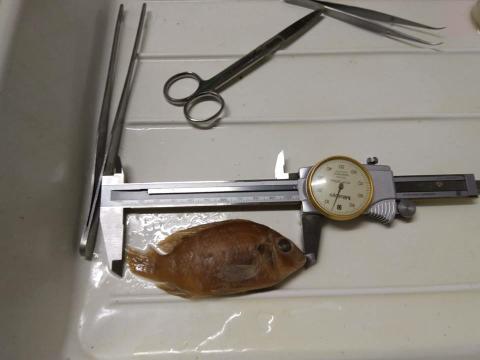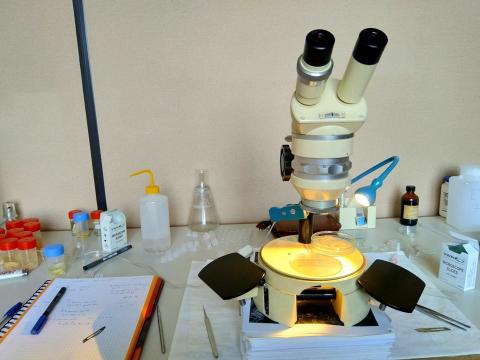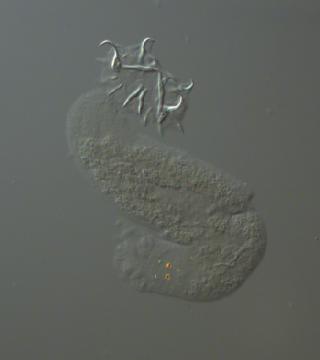Staff directory
Tine Huyse
Invertebrates
Project title: Local capacity strengthening to improve biological evaluation of mining impact on fish and their aquatic environment in Katanga (DR Congo)
South Katanga is a region characterized by intense mining activities, which cause severe pollution in the aquatic systems in the region. In this project, we study traces of pollution in environmental samples and in fish tissues. Additionally, we identify what kind of parasites are present in the fish population. Moreover, our results are communicated to the involved stakeholders to support future control measures.
This project aims to study the pollution of aquatic environments in South Katanga, which is due to intense mining activities in the region. We have three specific objectives: first, we analyze the water and the sediment in order to quantify their heavy metal load. Second, we perform a chemical analysis of collected fish organs in order to identify the presence of heavy metals in their tissues. We focus on the tissues of large barbs (Labeobarbus, Cyprinidae), catfish (Clariidae) and tilapia fish (Cichlidae). We combine these analyses with biological parameters (e.g. size-mass relationship). Third, we analyze the diversity and the abundance of branchial and intestinal parasites in these fish groups, two parameters which serve as a proxy for environmental stress. Additionally, the results of this study are communicated to the stakeholders, to lay the foundation for future actions that should minimise pollution of aquatic systems in South Katanga.
Principal investigator:
Dates:
2014 2016Museum staff:
External collaborators:
Auguste Cocha Manda (Université de Lubumbashi)Filip Volckaert (KU Leuven)
Lieven Bervoets (UA)


